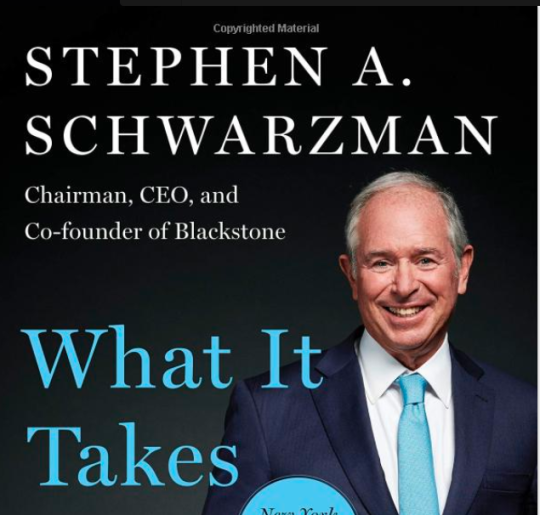What it Takes by Stephen Schwarzman

What it Takes by Stephen Schwarzman Read: October 2021 Well written memoir by one of the most successful asset managers of all time, Stephen Schwarzman, founder of Blackstone. Most of the books written by otherwise successful CEOs are unreadable. Not this one. However, the book may be well written, but the story itself is nothing to write home about. Its a usual success story of a super successful entrepreneur. He is born in a middle class family, is good at academics and sports, goes to some of the top colleges, gets recruited by the top banks, then does well there, branches out on own, and builds a mega corporation. There are no heroic episodes, no thrills of ups and downs, just a well written diary. There are flashes of brilliance in deal making, philanthropic activities in the end, dabbling in political ambitions in the middle, and so on. Stephen Schwarzman is born in a Jewish small business family. Is a decent athlete. Goes to Yale on sports abilities. Leaves sports, concentrates ...











